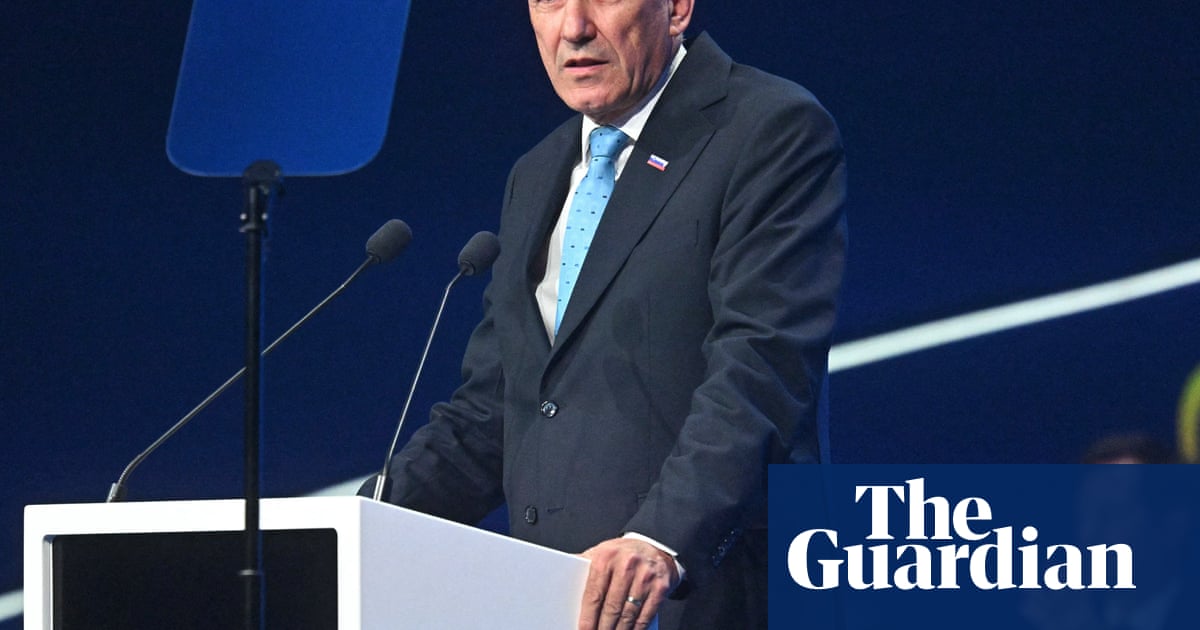Slovenia’s populist opposition has mounted a campaign against “degenerate” artists as it seeks to topple government plans for special pension top-ups for award-winning artists in a referendum on Sunday.
Voters in the central European country will cast their verdict on a government bill that details the conditions and terms under which certain artists can claim an allowance to be added to their pensions.
For the referendum law to be rejected, at least one-fifth of all eligible voters among Slovenia’s population of 2.12 million must vote “no”. The number of “no” votes must also represent more than half of all votes cast.
The bill, which passed parliament in January, has been prepared by the culture ministry that is held by the leader of the eco-socialist Left party, Asta Vrečko. The government – comprised of a coalition of the Freedom Movement, Social Democrats and Left parties – says it is enacting an overdue reform of special pension provisions for persons of merit that dates back to 1974, when Slovenia was one of the republics of Yugoslavia, by tying them to stricter criteria rather than leaving them at the mercy of the personal tastes of whichever politician holds the culture ministry.
Leading in the polls a year before national elections, however, the conservative Slovenian Democratic Party (SDS) has found in the relatively technical tweak to a 50-year-old law a rich seam for a culture war against perceived cultural elites. The referendum was initiated by the party, which is led by Janez Janša, a former prime minister.
Janša, an admirer of Donald Trump who has led the SDS since 1993,said in Marchthat classical art was “being replaced by all sorts of degenerate, unhinged models that claim to be ‘modern’” – his choice of the adjectiveizrojenechoing the term used by the German Nazi party to denounce modern art,entarteteor “degenerate”.
Posters and billboards hung across Slovenian towns across the country since February have featured an image of the Slovenian artist Maja Smrekar breastfeeding a dog, alongside the slogan: “Change for the people, prestige for the elite.”
Smrekar, 47, said the image is being used without her permission and wrenches out of context a single picture from a larger project, called K-9 Topology,which explores the bonds between humans and canines.
“Ever since the four weeks of signature collection for the referendum, I have received numerous threats and highly offensive messages via various communication channels,” she told the Guardian. “When politics decides what is art and what isn’t, that’s when democracy breaks down.”
Over the course of a four-month residency at Berlin’s Freies Museum in 2015-2016, the Brežice-born artist underwent psycho-endocrinological training to induce lactation and breastfed a sheepdog puppy, as “a form of interspecies solidarity and care”.
In 2017, Smrekar’s K-9 Topology won the Golden Nica trophy at Austria’s Prix Ars Electronica, one of the world’s oldest media art competitions, followed by Slovenia’s prestigious Prešeren Foundation award in 2018.
Under the new criteria proposed by the government, the combination of these awards would entitle Smrekar to a pension top-up equalling 50% of the difference between her existing pension and the highest one calculated from the pension base for 40 years of service.
Sign up toThis is Europe
The most pressing stories and debates for Europeans – from identity to economics to the environment
after newsletter promotion
Janša’s SDS, which has governed Slovenia for almost nine of the last 20 years andhanded out seven “special pensions” for cultural merit in 2022, says the proposed new rules would lead to an increasing share of public funds being allocated to “privileged” individuals, including those “who have contributed very little, if anything, to the pension fund”. An SDS spokesperson said: “Meanwhile, more than half of all pensioners live below the poverty line.”
The divisive referendum campaign is taking place against the backdrop of a broader pension reform embarked on by the government of Robert Golob, the prime minister,at the urging of the European Commission, which will lead to a rise in the retirement age from 60 years to 62 for those who have worked 40 years.
The government says that while its bill would initially lead to a surge of special pensions for artists on a waiting list, the overall burden on taxpayers would eventually stabilise at a lower cost than under the old law.
Of the 83 artists receiving special pensions for artists in Slovenia, 33 are next-of-kin who inherited it from the original recipient under the rules of original 1974 law. The revised bill would scrap the inheritance rule.
Slovenia’s national electoral commission has calculated the cost of the referendum on the bill could amount to about €6.6m. “The referendum is being abused as an election campaign, and a very costly one at that”, Vrečko, the culture minister, told the Guardian.
Golob – who was a newcomer at the 2022 elections – has urged the voters to boycott the vote, earning stark rebukes from the opposition. At Slovenian elections in 2022, his Freedom Movementemerged as a surprise winner, bucking an electoral trend towards rightwing populist rule in central and eastern European states such as Hungary and Serbia.
